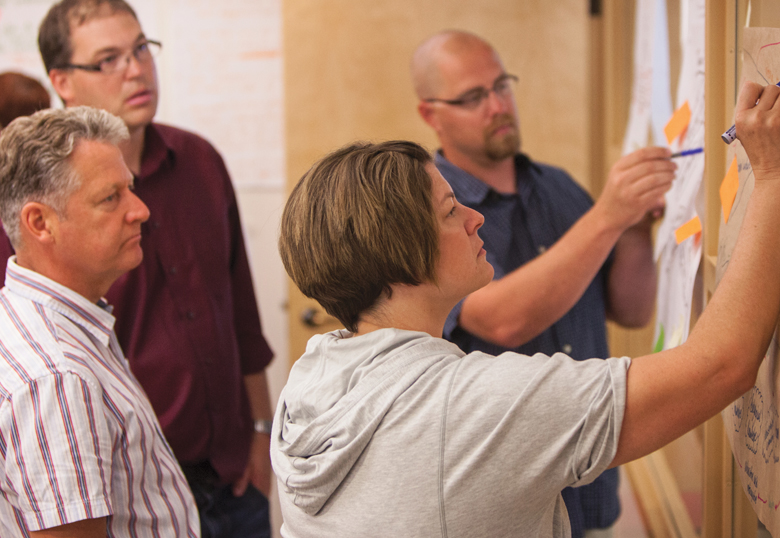In 2013, the University of Lethbridge Faculty of Education launched the master’s in education program focusing on curriculum and assessment.
“By 2016 Alberta expects to have brand new curriculum in every subject area,” says Dr. David Slomp. This program is designed to promote teacher leadership in curriculum and assessment redesign that is taking place across Canada.
“Rather than being subject-specific,” says Dr. Amy von Heyking, who co-developed the MEd program with Dr. Slomp, “the radically changed curriculum is framed around competencies, such as critical thinking, innovation, creativity, collaboration, and problem solving.”
“Outcomes for these core competencies are hard to assess using standard practices,” says Slomp. “Changes in curriculum have to be paralleled by changes in assessment. The two need to be integrated, not just practically, but theoretically and intellectually. When you build a curriculum that works at this level you need locally developed, high-quality assessments to capture the competencies.”
“Traditionally, questions of curriculum and assessment have been separated,” says von Heyking. “This program brings them together, forcing a dialogue that asks students to develop new theoretical models for both.” Students examine the way curriculum is changing and the way assessment questions need to change in response – then they build assessment tools that reflect those changes.
“We get each of them to identify an assessment need in their classroom, school or district,” says Slomp. He cites the example of one educator who is teaching Biology, Chemistry and Math together as part of the redesign. “We will work with her on how to measure those core competencies in that kind of a packaged science course.”
“We ask them to think differently,” says von Heyking. “They come to understand the history of the system and what we can learn from past innovations. We challenge them to be able to defend what they believe education is for. Fundamentally, these are philosophical issues.”
The three-year program consists of campus-based courses each July, one online course each fall, and another each spring.
“The first year is setting a foundation for understanding curriculum and assessment,” says von Heyking; “the second is research-focused, looking at innovative initiatives and having the opportunity to work specifically on their own practice; the final year puts it together, synthesizing what they’ve learned and how it reshapes our understanding of curriculum and assessment.”
The current cohort, with participants from Alberta, British Columbia, Saskatchewan, and the Yukon, shares information and exchanges ideas in a collaborative environment, taking back to districts, schools and classrooms groundbreaking theories and practices.
“Students taking this course are emerging in their schools and districts as leaders,” says Slomp. “They’re able to design more local curricula and work in much more creative ways with school structure,” adds von Heyking.
